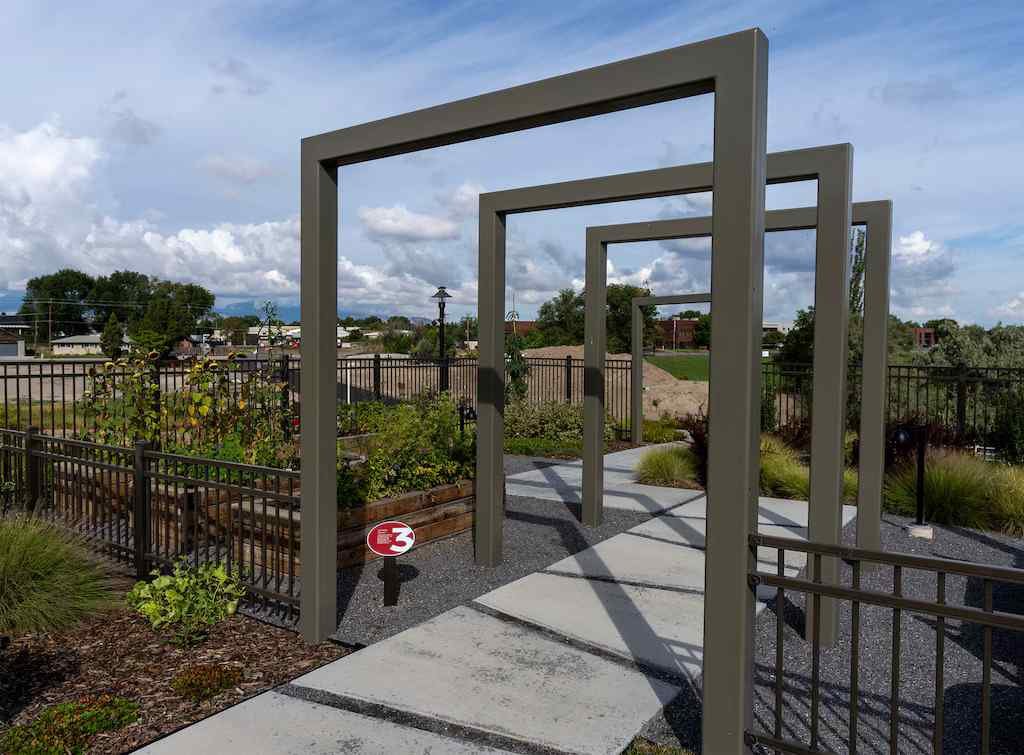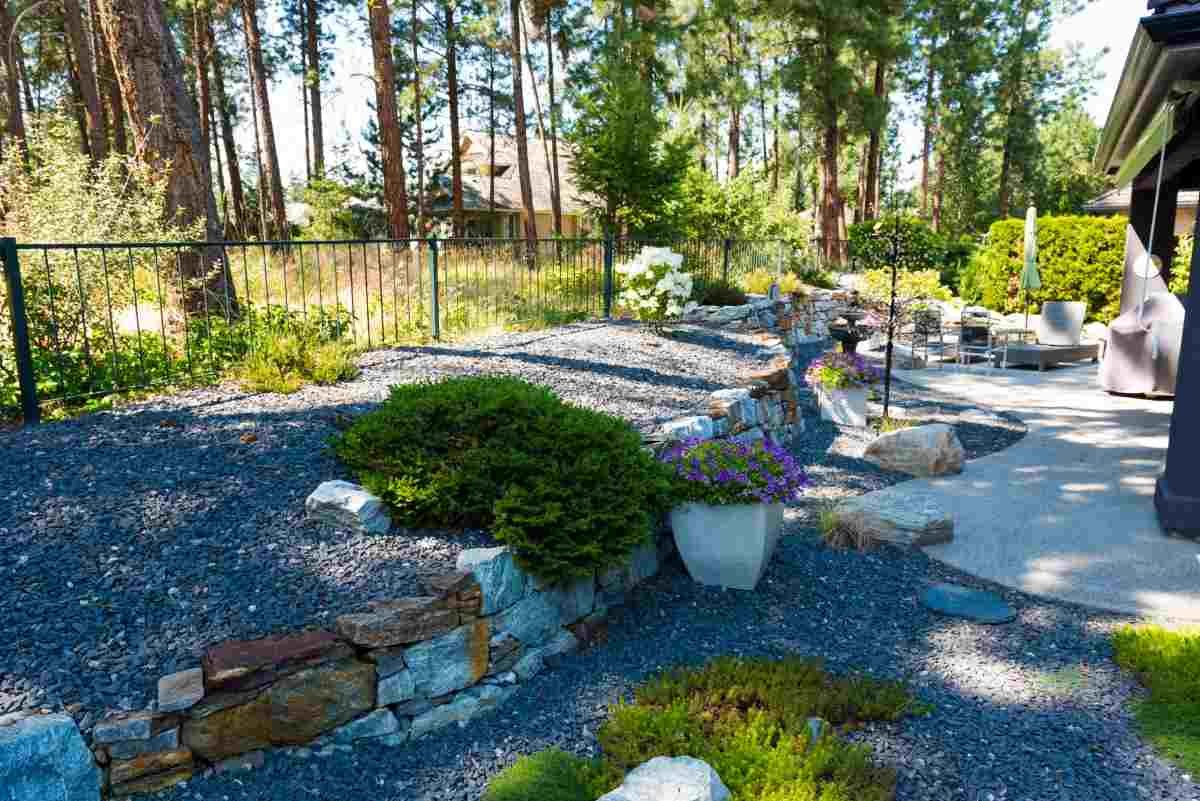Looking to make your Liberty Township landscape more water-wise? It’s easier than you think! Embracing water conservation techniques not only benefits your garden but also helps the environment. Start by incorporating drought-tolerant plants that thrive with less water. Smart irrigation systems can adjust to weather conditions, ensuring your plants get just the right amount of moisture. Evergreen Landscaping of Cincinnati can guide you through these eco-friendly practices, helping you create a lush, sustainable landscape while conserving precious resources. Ready to go green? Let’s make your garden both beautiful and efficient!
Are you a Liberty Township homeowner looking to make your landscape more sustainable? With increasing concerns about water conservation, it’s crucial to adopt practices that not only enhance the beauty of your yard but also help preserve our valuable water resources. In this guide, we’ll dive into practical water conservation techniques tailored for Liberty Township landscapes. Whether you’re looking to reduce water usage or improve the efficiency of your irrigation system, we’ve got you covered. Let’s explore how you can make your garden thrive while being mindful of water conservation.
1. Understanding the Importance of Water Conservation

Before we dive into the techniques, it’s essential to grasp why water conservation matters. In Liberty Township, like many other regions, water resources are finite and can be impacted by factors such as climate change, population growth, and seasonal droughts. Conserving water helps reduce the strain on local water supplies and ensures that future generations can enjoy the same lush landscapes we do today. By implementing water-efficient practices in your garden, you contribute to the well-being of our environment and your community.
2. Choose the Right Plants
Choosing the right plants is essential for a water-efficient landscape. Opt for drought-tolerant and native species that thrive with minimal water and maintenance. Incorporating these plants into your garden not only conserves water but also enhances the beauty of your outdoor space. For those considering landscaping renovations, professional services can help select suitable plants and design a water-smart garden. They can also assist in integrating efficient irrigation systems and other conservation techniques for a sustainable and visually appealing landscape.
One of the most effective ways to conserve water in your landscape is by selecting plants that are well-suited to our local climate. Opt for native plants and drought-tolerant species that require less water and maintenance. Native plants are adapted to the local soil and weather conditions, making them more resilient and less demanding in terms of water. Some excellent choices for Liberty Township include:
Black-eyed Susans:
These vibrant flowers are drought-tolerant and add a splash of color to your garden.
Coneflowers: Another hardy option that thrives with minimal water and attracts pollinators.
Daylilies:
Known for their resilience, daylilies can handle dry periods and still produce beautiful blooms.
By incorporating these plants into your garden, you can create a stunning landscape that requires less water and maintenance.
3. Implement Smart Irrigation Systems
An efficient irrigation system is key to conserving water and ensuring that your plants receive the right amount of moisture. Traditional sprinklers often waste water through evaporation and runoff, but smart irrigation systems offer a more precise solution. Here’s how you can upgrade your irrigation system:
Drip Irrigation:
This system delivers water directly to the plant’s roots, minimizing evaporation and runoff. Drip irrigation is perfect for flower beds, vegetable gardens, and container plants.
Soil Moisture Sensors:
These sensors measure the moisture levels in your soil and adjust the irrigation schedule accordingly. They help avoid overwatering and ensure that your plants receive just the right amount of water.
Rain Sensors:
Rain sensors automatically turn off your irrigation system when it detects rainfall, preventing unnecessary watering and conserving water.
Evergreen Landscaping of Cincinnati can assist you in selecting and installing the right irrigation system for your needs. Their expertise ensures that your system is tailored to your landscape and water conservation goals.
4. Use Mulch Wisely
Mulch is a fantastic tool for conserving water in your garden. It acts as a barrier between the soil and the sun, reducing evaporation and helping to retain moisture. Additionally, mulch helps suppress weeds, which can compete with your plants for water. Here’s how to use mulch effectively:
Choose the Right Type:
Organic mulches like wood chips, straw, and shredded leaves are excellent for water conservation. They decompose over time, adding nutrients to the soil.
Apply Properly:
Spread a layer of mulch about 2-3 inches thick around your plants, keeping it away from the plant stems. This layer will help retain soil moisture and regulate soil temperature.
By incorporating mulch into your garden, you’ll reduce the need for frequent watering and promote healthier plants.
5. Practice Efficient Watering Techniques
How and when you water your garden can make a significant difference in water conservation. Here are some tips for watering efficiently:
Water Early or Late:
Water your plants early in the morning or late in the evening to minimize evaporation. This ensures that more water reaches the roots where it’s needed.
Water Deeply but Less Frequently:
Instead of frequent shallow watering, give your plants a deep soak. This encourages roots to grow deeper, making them more drought-resistant.
Use Watering Cans:
For smaller areas or container plants, use a watering can instead of a hose. This allows you to direct water precisely where it’s needed and avoid waste.
By adopting these watering techniques, you’ll help conserve water and keep your garden healthy.
6. Optimize Lawn Care
Optimizing lawn care involves practices like mowing grass at a higher setting to reduce evaporation, aerating the lawn to improve water absorption, and using drought-resistant grass varieties. These methods enhance water efficiency and maintain a lush, green lawn. For those seeking expert assistance, landscaping services can offer tailored solutions to optimize your lawn care. They can help with proper lawn maintenance techniques, recommend suitable grass types, and implement water-efficient practices for a healthier, more sustainable lawn.
Lawns often require a significant amount of water, but there are ways to make them more water-efficient:
Mow High:
Set your mower to a higher setting. Taller grass provides shade to the soil, reducing evaporation and encouraging deeper root growth.
Aerate Your Lawn:
Aerating helps improve water absorption and reduces runoff. It also allows nutrients to reach the roots more effectively.
Consider Alternatives:
If maintaining a traditional lawn is too water-intensive, explore alternatives like groundcovers, ornamental grasses, or drought-tolerant turf varieties.
Evergreen Landscaping of Cincinnati can offer valuable advice on lawn care and help you implement water-efficient practices to keep your lawn looking lush and green.
7. Capture and Reuse Rainwater
Rain barrels are a great way to capture and reuse rainwater for your garden. Installing rain barrels at downspouts allows you to collect runoff from your roof, which can then be used to water your plants. Here’s how to get started:
Choose the Right Barrel:
Select a rain barrel with a proper filtration system to keep debris out. Look for models with spigots for easy access to the collected water.
Position Correctly:
Place the rain barrel under a downspout and elevate it slightly to allow gravity to assist with water flow.
Use Responsibly:
Use the collected rainwater to water your garden during dry spells, reducing your reliance on municipal water supplies.
By incorporating rain barrels into your landscape, you’ll make the most of natural water sources and further reduce your water consumption.
8. Create Water-Smart Gardens

Creating water-smart gardens involves designing with drought-tolerant plants, grouping plants by water needs, and using efficient irrigation systems. Incorporate elements like mulch to retain soil moisture and reduce water use. For low-maintenance landscaping options, consider ground covers, ornamental grasses, and native plants that require minimal watering and upkeep. These choices not only save water but also reduce garden maintenance. Professional landscaping services can help design and implement a water-smart garden that suits your aesthetic and conservation goals.
Designing your garden with water conservation in mind can lead to a more sustainable and beautiful landscape. Consider these design tips for a water-smart garden:
Group Plants by Water Needs:
Arrange your plants according to their water requirements. Grouping plants with similar needs together helps optimize irrigation and reduces water waste.
Incorporate Hardscaping:
Add pathways, patios, and retaining walls to reduce the amount of turf and lawn area. Hardscaping elements can help with water management and reduce maintenance.
Use Xeriscaping Principles:
Xeriscaping involves designing your garden to be water-efficient. This includes using drought-tolerant plants, efficient irrigation, and mulch.
Evergreen Landscaping of Cincinnati can help you design a water-smart garden that fits your aesthetic preferences and conservation goals. Their expertise in landscape design ensures that your garden is both beautiful and sustainable.
FAQs
What are the strategies for water conservation?
Effective water conservation strategies include using drought-tolerant plants and efficient irrigation systems, such as drip irrigation and soil moisture sensors, to reduce water waste. Implementing mulching techniques helps retain soil moisture and minimize evaporation. Additionally, capturing and reusing rainwater through rain barrels can further reduce reliance on municipal water supplies.
Which techniques are best for water conservation in agriculture?
In agriculture, the best water conservation techniques include drip irrigation systems that deliver water directly to plant roots, minimizing evaporation and runoff. Implementing soil moisture sensors helps optimize irrigation schedules based on actual plant needs. Additionally, using cover crops and mulching can enhance soil moisture retention and reduce water loss.
What are the different methods of water conservation?
Water conservation methods include reducing water usage through efficient fixtures and appliances, such as low-flow showerheads and toilets. Implementing rainwater harvesting systems and recycling greywater for irrigation helps manage water resources more effectively. Additionally, adopting landscaping techniques like xeriscaping and mulching can minimize water waste by using drought-tolerant plants and retaining soil moisture.
What water conservation methods are used in gendathur village?
In Gendathur village, water conservation methods include the construction of check dams and rainwater harvesting systems to capture and store rainwater for agricultural and domestic use. The village also practices soil moisture management techniques, such as planting cover crops and using organic mulches to retain soil moisture. Additionally, community-led water management initiatives, including educating residents on efficient water use and maintaining local water bodies, play a crucial role in sustainable water conservation.
Which of the following are effective methods of water conservation?
Effective methods of water conservation include using low-flow fixtures and appliances to reduce water consumption, implementing efficient irrigation systems like drip irrigation to minimize water waste, and employing rainwater harvesting techniques to collect and reuse rainfall. Additionally, adopting landscaping practices such as xeriscaping and applying mulch can help retain soil moisture and reduce the need for frequent watering. Educating communities about water-saving practices also plays a vital role in overall conservation efforts.
Conclusion
By adopting water conservation techniques, you can make a positive impact on your Liberty Township landscape and contribute to the preservation of our valuable water resources. From choosing the right plants to implementing efficient irrigation systems and incorporating rain barrels, there are many ways to make your garden more water-wise. Evergreen Landscaping of Cincinnati is here to support you in creating a beautiful, sustainable landscape that aligns with your water conservation goals. Start making changes today and enjoy a lush, eco-friendly garden that you can be proud of.
